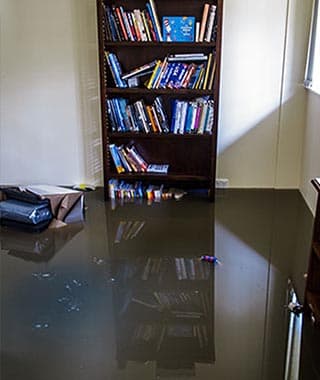We are heading into hurricane season here in Florida, and that means preventing water damage should be on every home and property owner’s mind. Navigating what to do right away after a water intrusion event should be a phone call to an expert company, but if you’re curious about getting the whole picture because you have time to check this guide out.
Many people may be afraid of wind damage but it’s water that’s the most likely to damage your property and valuables. In addition, water damage is a threat outside of the hurricane season as well. Left untreated, a single leak could cost you thousands of dollars to fix. Here’s what you need to know on the subject.
What Causes Water Damage?
Water damage can include any sort of impact that excessive water contact has with an object in your home. Valuable documents ruined? Upholstery damage with your furniture? Issues with your foundation? Soaked carpet? All of these issues qualify as water damage.
With expense and time, you may be able to repair/salvage some of your items that were damaged by water. However, that depends on the nature of the water.
How so? Condensation around your air conditioner and floodwaters can both cause water damage, but they are different types of water. Damage from floodwater is the most dangerous because of the high amounts of bacteria and other debris that are generally present.
As a result, anything that comes into contact with this type of water needs to be thrown away for your own safety. Something especially insidious about water damage is that some of the effects may not be seen right away. For example, if a water leak happens behind your drywall, you may not notice it at first.
This can become a breeding ground for mold and mildew down the road. Left unchecked, this issue could cause health problems and expensive repairs.
Options For Water Damage Clean Up
As mentioned, the longer that the source of water damage is present, the more effects can stem from it. As a result, it’s important that you put together a plan for water damage cleanup as soon as possible. There are a few ways that you can go about this:
Doing the work yourself
This would generally entail using your own manpower/tools at your disposal in order to get rid of the water and disposing of anything you can’t salvage. However, the situations where handling it yourself is appropriate are extremely limited.
Water damage would have to be entirely localized to one small area, where the water present was clean, like from rain or your sink. Even if you managed to clear out the water without the assistance or guidance of a professional, there would still be the potential risk of water damage that you can’t see growing over time.
Professional water damage clean up
Water damage clean up professionals have access to more effective tools than your average property owner does. This includes inspecting the property and the tools to remove water/damaged materials.
Note that companies may use different methods for water damage clean up, from vacuums to dehumidifiers to a combination of these and other options.
water damage clean up equipment
The Water Damage Clean Up Process
So, with this in mind, when you’ve experienced water damage, what’s the process to actually get water damage done? Let’s start from when you first contact a water damage restoration professional
- Inspection: A professional will begin by examining all applicable areas of your home for water damage to know what rooms they have to work with. Note that you may need a separate professional like a plumber to fix root causes like burst pipes that may still be ongoing.
- Drying out: This will use equipment to remove any moisture from the area affected. This effectively halts the spread of water damage.
- Removal: Any items that can’t be salvaged will be disposed of after the area is dried up.
- Consultation: The restoration professional will explain the scope of the issue and offer advice on what the property owner can do.
No matter which of these options you go with, you want to have proper professionals on your side. That means working with the experts at Total Care Restoration.
We can appraise the situation and point you toward the best course of action. Contact us today if you are looking to get started.
By Kyle Haywood











